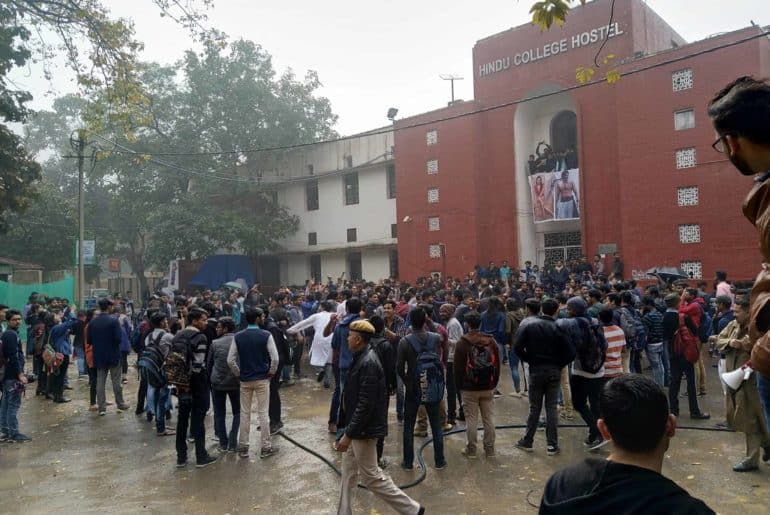The University of Delhi (DU) can be a social laboratory to understand how democratic processes work. But sustaining this laboratory needs effort.
You could have been in any other university in India or even abroad – some arguably better, and some worse than DU.
But now that you have ended up here, just like thousands of others from all corners of the country, you have a chance of understanding how democracy and dissent work. That is not to say that this is something exclusive to DU – indeed, it might not even be the best in equipping you with this understanding – but, this is one highlight of this university.
If you choose to, you can allow yourself to be bombarded by a multitude of varying, often conflicting ideologies and thoughts. The sheer magnitude and diversity of people who study in this University is enough of an indicator of how many different kinds of ideas can flourish in and out of its walls. If you don’t choose to live under a rock, this will invariably challenge many beliefs and biases, predilections and prejudices, opinions and outlooks that you might have. Even though soaking in so many conflicting ideas becomes difficult at first, this kind of internal dissent is absolutely necessary for those who wish to have clearer and truer perspectives about issues and who wish to refine their understandings and solidify their arguments.
This “internal dissent” is a much longer, drawn-out process and is just one part of the whole picture though. The other part is the live physical manifestations of dissent that are not rare in the University by any account. You will see students, teachers and others protesting about issues and problems, the impacts of which on people would have probably never occurred to you before.
When various student organisations came together to support the contractual sanitation workers of the university, who, after years of their job, faced the risk of termination and loss of livelihood, it told you how routine official tasks like a change of contract from one company to another can have human costs. When students and teachers protested against the 13 point roster system of teachers’ appointments or against privatisation, it spoke of a struggle to ensure representation and the presence of diversity on our campuses. When sides clashed over the Virgin Tree pooja controversy at Hindu College, it exemplified not only ideological differences but also how conflicting parties act out those differences in politics. This is by no means an exhaustive list.
The University can be a social laboratory to understand how democratic processes work, but sustaining this laboratory needs effort. It’s disheartening to see very few people showing up to many such protests. Many come and attend classes and go back, without fostering this democratic engagement. Many issues slide by. Unresponsive authorities sometimes make protests ineffective.
In this context, it becomes the prerogative of students to make sure a culture of democratic discussion, questioning and peaceful dissent is fostered and sustained. The most crucial step that authorities take to keep themselves safe is suppression of dissent. Orwell’s 1984 comes to mind.
Thankfully, we are not in Oceania and can hence dissent against the wrongdoings to keep the authorities in check. Question what you are taught and not taught; question the authorities; question ideologues and ideologies. Question the protests, and question the media as well.
Feature Image credits: Prateek Pankaj for DU Beat
Prateek Pankaj




Comments are closed.